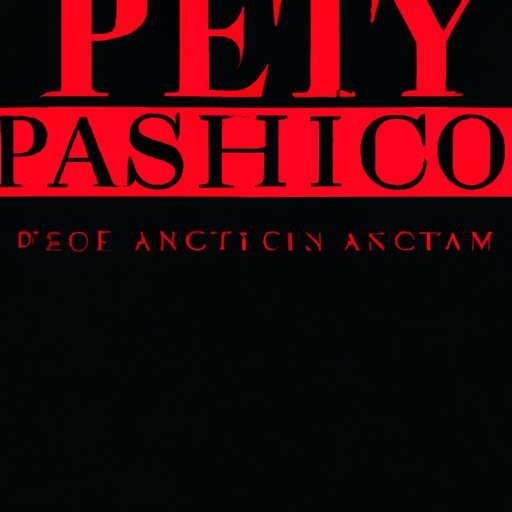Exploring the Controversial Depths of American Psycho
Since its publication in 1991, Bret Easton Ellis’ American Psycho has been a lightning rod of controversy and fascination in the world of literature. The novel’s depiction of violence, nihilism, and the dark underbelly of American culture has inspired fierce debate among readers, critics, and scholars alike. But beyond its shocking content lies a complex exploration of themes on materialism, identity, and the nature of reality that continue to captivate and challenge readers today.
How American Psycho Satirizes America’s Fixation with Wealth and Privilege
At its core, American Psycho is a satirical critique of the shallow and materialistic culture of the 1980s. Through the character of Patrick Bateman, a wealthy investment banker and serial killer, Ellis exposes the excesses and hypocrisies of the elite class with razor-sharp precision. Bateman’s obsession with designer clothing, fine dining, and status symbols is both a symptom and a critique of a society obsessed with image and social status.
However, the novel also delves into the darker implications of this fixation with wealth and privilege. Bateman’s violent outbursts and psychotic breaks reveal the toxic effects of a society that places so much value on success and status, and the toll it can take on one’s mental health and morality. Ellis’s incisive commentary on social hierarchies and class divisions cuts to the heart of the corrupting influences of power and privilege, and the ways in which they can blind individuals to the suffering and humanity of others.
A Psychological Analysis of American Psycho
Beneath its biting social commentary, American Psycho is also a deeply psychological work that explores themes on identity, psychosis, and the nature of reality. Bateman’s fragmented and unreliable narration, coupled with the novel’s abrupt shifts in tone and style, create a disorienting and hallucinatory experience for the reader, echoing Bateman’s own struggles with dissociation and detachment.
Through Bateman’s character, Ellis portrays the breakdown of the self and the inherent instability of identity in a postmodern world. Bateman’s erratic behavior, fluid personas, and obsession with control and perfectionism speak to larger cultural anxieties around the loss of individual agency and autonomy in an increasingly fragmented and unstable society. The novel’s ambiguous ending only adds to its unsettling and thought-provoking quality, leaving readers to grapple with their own interpretations of the nature of reality and the human psyche.
A Comparison of American Psycho the Film and the Novel
When American Psycho was adapted into a film in 2000, many were skeptical of whether the controversial and complex novel could be faithfully translated onto the big screen. While the film maintains the same basic plot and characters, there are significant differences in style, narrative structure, and character portrayal.
The film’s portrayal of Bateman as a more one-dimensional and caricatured figure, along with its lighter tone and more overt humor, have led some to criticize it as a watered-down version of the book. However, others argue that the film’s changes allowed it to capture the spirit and essence of the book in a way that would be difficult to do otherwise. Regardless of one’s opinion on the adaptation, it’s clear that American Psycho the film holds a unique and significant place in the larger cultural discourse surrounding the novel and its themes.
What the Controversy Surrounding American Psycho Reveals About Censorship in America
Perhaps one of the most enduring legacies of American Psycho is its role in sparking intense debates on censorship and artistic freedom in America. The novel’s graphic depictions of violence and sexual acts led to widespread condemnation and calls for it to be banned, with some even accusing it of promoting violence and misogyny.
However, defenders of the book argued that it was a work of satire and critique, and that attempts to ban it were an infringement on the author’s right to free speech. The controversy surrounding American Psycho highlighted larger societal trends in America around the moral panic and censorship of art and culture, particularly in response to works that challenge dominant power structures and cultural norms.
American Psycho and the Evolution of the Horror Genre
While American Psycho is often categorized as a work of literary fiction, it also holds an important place within the horror genre. Ellis’s subversion of traditional horror tropes and his use of extreme violence and gore challenged readers’ and critics’ expectations of what constituted horror literature.
The novel’s legacy can be seen in the work of contemporary horror writers and filmmakers who have similarly pushed the boundaries and conventions of the genre. From Jordan Peele’s Get Out to Stephen Graham Jones’s The Only Good Indians, authors and filmmakers continue to explore themes on society, race, and identity in new and provocative ways, in the spirit of Bret Easton Ellis’s landmark novel.
Conclusion
American Psycho remains a thrilling, challenging, and polarizing work of literature that continues to captivate and provoke readers over two decades after its initial publication. Through its biting satire, psychological depth, and cultural commentary, the novel offers a searing critique of American society that has lost none of its relevance or potency today. Whether one sees it as a masterpiece of contemporary literature or a misanthropic work of shock value, there is no denying its enduring impact on the literary and cultural landscape. If you’re interested in learning more about the book, resources such as scholarly articles, critical essays, and interviews with the author are widely available.
